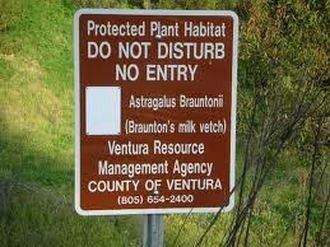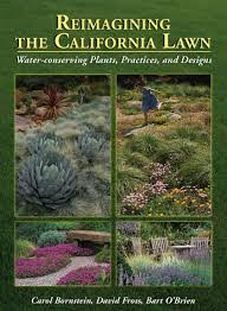 “It was the best year for wildflowers that many of us have ever seen on Mount Diablo. A once-in-a-generation experience,” they said. UC Davis Professor of Environmental Science and Policy and main author of the years’ long study Susan Harrison says, “Fifteen years ago, you had just these wonderful wildflower years. The good years aren’t quite as good anymore and the good years aren’t as frequent anymore.” In the future, university research will be focusing on scenarios that might play out as the diversity of wildflowers is compromised because of drought conditions and climate change. Dormant seedlings sprout in rainfall, but die back before reaching maturity without continued rain; therefore, the production of new seeds is hindered or even non-existent. At stake is the “diversity” of California’s native plants, Harrison said. “Diversity is a term for the number of species.” Without diversity, she said, California plant populations would become “a monoculture,” Harrison said. Monoculture is the cultivation or existence of one species. “Our study shows that 15 years of warmer and drier winters are creating a direct loss of native wildflowers in some of California’s grasslands.” Such diversity losses may foreshadow larger-scale extinctions, especially in regions that are becoming increasingly dry,” she said. The researchers confirm that drought-intolerant species suffered the worst declines. The California Native Plant Society’s executive director Dan Gluesenkamp commented on the study in terms of the wide range of ecosystems and how wildflowers behave differently in each of them saying, “In California, variability is the norm,” he said. “They [UC Davis] have 15 years of data. … For California grassland, that’s not a lot of time.” “Gluesenkamp, whose organization has roughly 10,000 paying members, said the best way to protect California native plants is to identify which plants are threatened and set aside habitat for them in trusts and parks. He also called for more native plant restoration.” “I wouldn’t worry about the sky falling because of climate change,” he said. “But keep watching,” in the Sacramento Bee report. Global food chains negatively affected Despite claims by climate change deniers, the repercussions from climate change and drought reach not only in California but also to Mediterranean environments like southern Europe signaling greater awareness of the connection between extreme weather patterns in semi-arid regions around the globe. Researchers believe future grassland communities of California and beyond will be less productive, provide less nutrition to herbivores, and become more vulnerable to invasion by exotic non-natives, the study says. Preserving native wildflowers in grasslands has effects beyond the aesthetic. University researchers expect the negative effects to cascade up through the food web—affecting insects, seed-eating rodents, birds, deer, and domesticated species like cattle, all of which rely on grasslands for food. Seed banks could be the answer—maybe if we act now The study provided some hope for saving wildflowers in grasslands during the current drying period through their extensive seed banks. Seeds can be dormant for decades waiting for the right conditions to germinate. Heirloom seeds have been discovered after being dormant for years. Some predictions, however, warn California’s drought will intensify in the next decades which could make some attempts to rescue native species as being too late for some species. Seed banks are preparing for the worst case future scenarios. There are approximately 400,000 known species, and the Millennium Seed Bank aims to conserve 25 percent in the form of seeds by 2020. The seed bank is located on the grounds of Britain’s Royal Botanical Gardens, which were constructed by King Henry VII and are now considered a UNESCO World Heritage Site. Focused on conserving seeds from plants that can be used for food production, the Millennium Seed Bank currently holds seeds from over 10 percent of all plant species. As the connection between ensuring the world food chain by protecting native plants species is discovered, seed banks everywhere should consider saving a variety of seeds including those obtained from wildflowers. Resources http://www.sacbee.com/news/state/california/water-and-drought/article25204135.html http://www.futurity.org/wildflowers-california-947712/ http://blogs.worldwatch.org/five-global-seed-banks-that-are-protecting-biodiversity
3 Comments
Eileen
25/6/2015 11:37:34 am
Good luck with seed preservation. I guess some things are going to change and it will be goodbye to some living things and hello to others.
Reply
Dava Castillo
26/6/2015 01:11:29 pm
Thank you for reading and commenting Eileen.
Reply
eileen
27/6/2015 01:29:02 am
Gosh Dava a blast from the past! I remember survivors and watching it when we still had an old black and white TV.
Reply
Leave a Reply. |
Dava Castillo
is retired and lives in Clearlake, California. She has three grown
children and one grandson and a Bachelor’s degree in Health Services
Administration from St. Mary’s College in Moraga California. On the
home front Dava enjoys time with her family, reading, gardening, cooking
and sewing. Archives
November 2015
|


